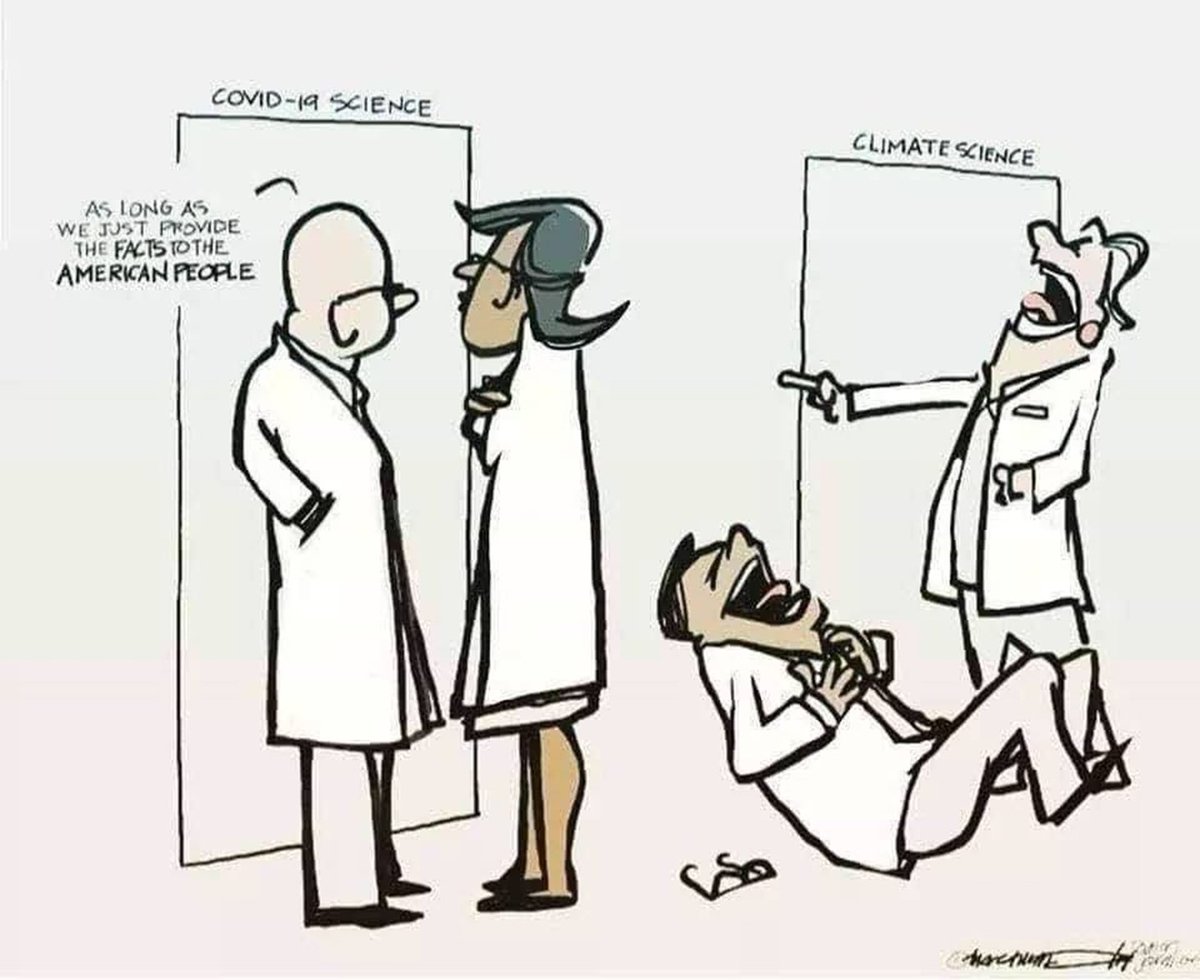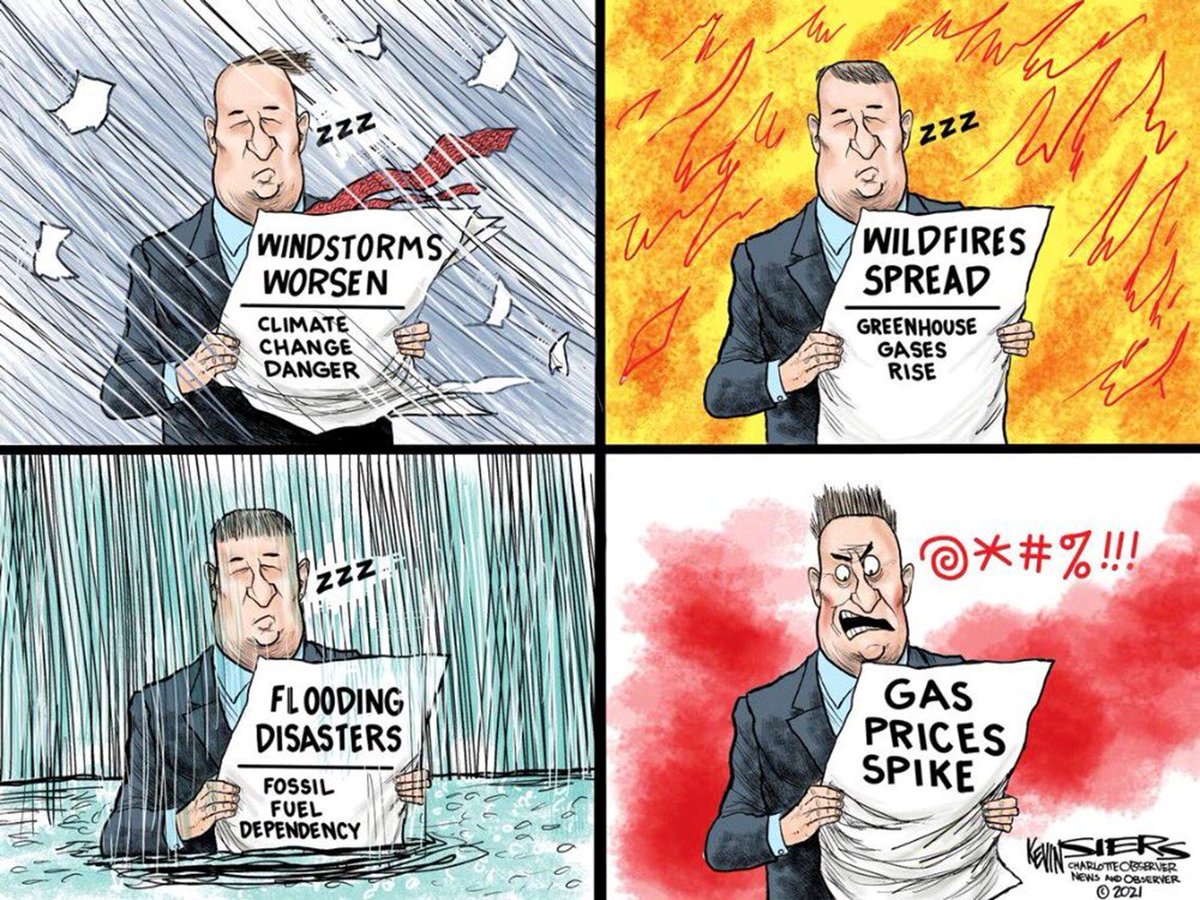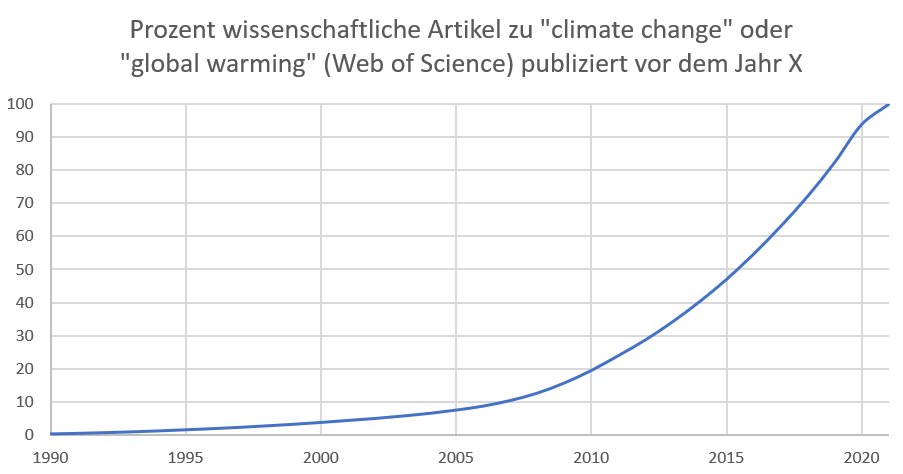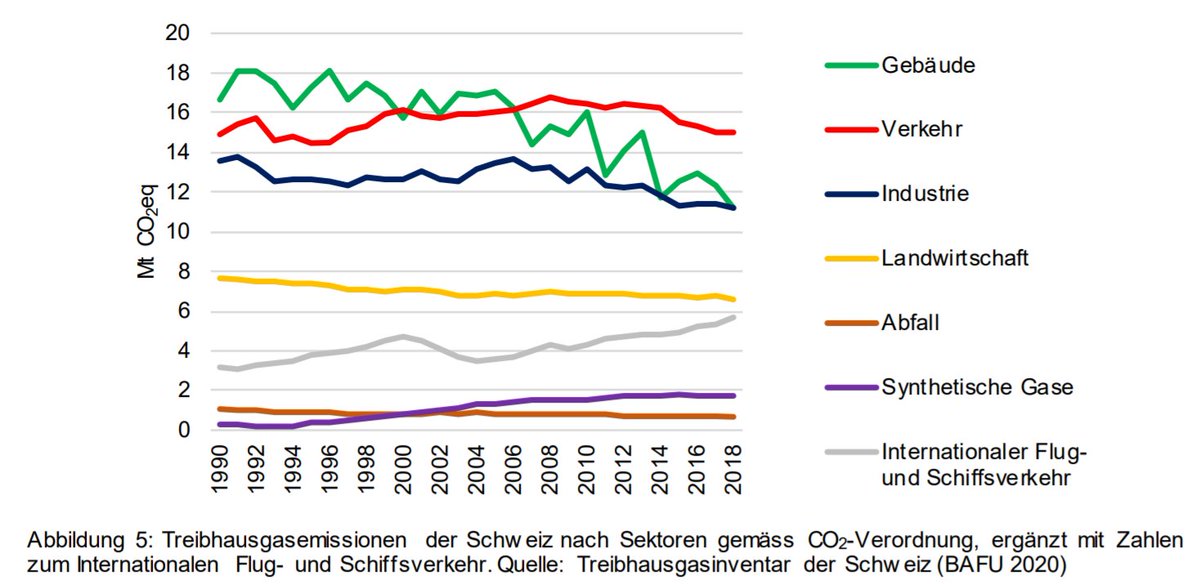
1/ Do we need more science facts to support climate law/taxes? No.
A new study shows perceived fairness+effectiveness, concern, risk perception, seriousness, values, beliefs, trust and ideology *ALL* come before knowledge and education.
Thread...
nature.com/articles/s4155…
A new study shows perceived fairness+effectiveness, concern, risk perception, seriousness, values, beliefs, trust and ideology *ALL* come before knowledge and education.
Thread...
nature.com/articles/s4155…

2/ Many still argue that we just need to better explain the facts of climate change to the public and policymakers, and assume that once they understand the urgency of the situation, they will agree to reduce CO2 emissions.
3/ With fake news and media under pressure, obviously a scientific basis like @IPCC_CH, education and #scicomm *ARE* crucial. Without a scientific basis, there would be no Paris agreement, and no sensible plan to adapt.
4/ Indeed ignoring the facts would be stupid:
“What’s the use of having developed a science well enough to make predictions if, in the end, all we’re willing to do is stand around and wait for them to come true?”
― F. Sherwood Rowland
“What’s the use of having developed a science well enough to make predictions if, in the end, all we’re willing to do is stand around and wait for them to come true?”
― F. Sherwood Rowland
5/ Scientists have a role here. People expect scientists to engage more.
@colognav @NaomiOreskes
iopscience.iop.org/article/10.108…
@colognav @NaomiOreskes
iopscience.iop.org/article/10.108…
6/ But it's not just about explaining facts. People with higher sci. literacy are *not* more concerned about climate change, just more polarized. Concern about climate change is predicted mostly by values, political left/right, and by those who we trust.
nature.com/articles/nclim…
nature.com/articles/nclim…
7/ The relationships between world views, values, conservatism, conspiracy, scepticism differ across countries. Climate change being a political left/right issue is more prominent in the US than elsewhere.
nature.com/articles/s4155…
nature.com/articles/s4155…
8/ Others have argued that knowledge *does* predict perception, but it depends on how you measure knowledge. But concern is not equivalent to supporting action.
There are many things we are concerned about in the world, but do nothing about them.
nature.com/articles/nclim…
There are many things we are concerned about in the world, but do nothing about them.
nature.com/articles/nclim…
10/ As shown e.g. by Kahneman, human decisions are often emotional, irrational and flawed. Guided by short-term incentives, personal values, heuristics, past experience, and those around us.
amazon.com/Thinking-Fast-…
amazon.com/Thinking-Fast-…
12/ Policy is sometimes less about facts than about identities and worldviews, about who we are. Shared facts to do imply shared values or agreement on what to do. Facts and numbers to dictate political decisions and societal actions. We've seen this in the pandemic and climate. 

13/ Evensen wrote:
The message from #FridaysForFuture "focuses far too heavily on the need to ‘listen to science’, which is at most a point of departure for answering the ethical and political questions central to climate action.
nature.com/articles/s4155…
The message from #FridaysForFuture "focuses far too heavily on the need to ‘listen to science’, which is at most a point of departure for answering the ethical and political questions central to climate action.
nature.com/articles/s4155…
14/ As an @IPCC_CH author, I argue that a scientific basis *is* crucial for making informed decisions, and the science policy dialogue absolutely needs to be strengthened. We must and can do better, and we should engage.
ethz.ch/en/news-and-ev…
ethz.ch/en/news-and-ev…
15/ Decisions should of course be based on evidence, ignoring it can be deadly. Again the similarities between climate and #COVID are striking.
ethz.ch/en/news-and-ev…
ethz.ch/en/news-and-ev…
16/ It is also evident in many areas that politics is unable to deal with scenarios, predictions and uncertainties
ethz.ch/en/news-and-ev…
ethz.ch/en/news-and-ev…
17/ Scientists can draw a map and identify possible ways and obstacles, but without a discussion on priorities and goals, they cannot dictate where to go.
18/ Many of those points have been made before, e.g. in the Hartwell paper:
"…common and flawed assumption that the solutions to climate change should be ‘science driven’ as if a shared understanding of science will lead to a political consensus.”
eprints.lse.ac.uk/27939/
"…common and flawed assumption that the solutions to climate change should be ‘science driven’ as if a shared understanding of science will lead to a political consensus.”
eprints.lse.ac.uk/27939/
19/ Hartwell paper:
"Contrary to all our modern instincts, political progress on climate change simply cannot be solved by injecting more scientific information into politics. More information does not automatically reduce uncertainty and increase public confidence…"
"Contrary to all our modern instincts, political progress on climate change simply cannot be solved by injecting more scientific information into politics. More information does not automatically reduce uncertainty and increase public confidence…"
20/ Dan Sarewitz had a beautiful opinion piece on this a decade ago. Read it.
wires.onlinelibrary.wiley.com/doi/10.1002/wc…
wires.onlinelibrary.wiley.com/doi/10.1002/wc…
21/ Try to close the knowledge action gap by focusing on
- More near term local information
- Inter- and transdisciplinary approaches
- Solutions with co-benefits
- Uncertainties, risk management and resilience
- Engaging with social sciences, humanities
sciencedirect.com/science/articl…
- More near term local information
- Inter- and transdisciplinary approaches
- Solutions with co-benefits
- Uncertainties, risk management and resilience
- Engaging with social sciences, humanities
sciencedirect.com/science/articl…
22/ Summary:
Facts do matter. Yes, it *is* urgent.
But don't be naive in thinking that more facts and more urgent warnings are enough for people to agree on what to do.
Facts do matter. Yes, it *is* urgent.
But don't be naive in thinking that more facts and more urgent warnings are enough for people to agree on what to do.
23/ PS: I'm only a climate modeler, and others of course done much more on this and are more qualified to talk about it. Happy to learn, please add your thoughts and relevant links.
@ecotone2 @NaomiOreskes @MaibachEd @Sander_vdLinden @colognav @Michael_Stauff
@ecotone2 @NaomiOreskes @MaibachEd @Sander_vdLinden @colognav @Michael_Stauff
• • •
Missing some Tweet in this thread? You can try to
force a refresh














